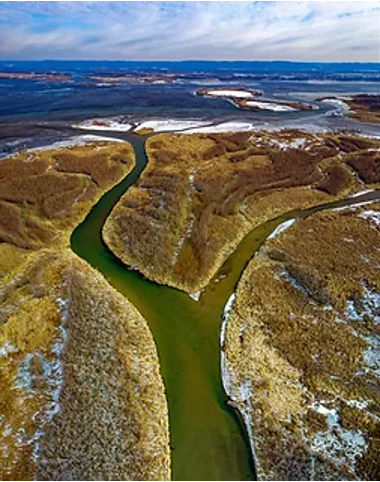Greetings, AEA365 readers! Liz DiLuzio here, Lead Curator of the blog. To whet our appetites for this year’s conference in beautiful New Orleans, this week’s posts come to us from the feature the perspectives of the Gulf Coast Eval Network (GCEval) members, where the uniqueness of doing evaluation in the gulf south will be on display. Happy reading!

Hello! I’m William Faulkner, Director of Data & Evaluation at Court Watch NOLA, and a member of the Gulf Coast Eval Network (GCEval – we usually call it ‘Gee-See-Eval’). As part of GCEval’s work to infuse the upcoming national conference with hands-on gulf coast experience, we’re announcing the Evaluation Without Boundaries (EWB) program!
EWB builds on the experiences of similar initiatives at previous AEA conferences (special shout-out to Washington Evaluators for helping us put it together). The goal is to match evaluators with community-based organizations/non-profits seeking program planning, measurement, and evaluation services.
The Idea
Although the times are changing (and I have no empirical evidence to back this up), operating as an evaluator in Louisiana, Mississippi, and Alabama often feels like operating on the margins. Neither is the supply & demand of evaluation services as professionalized, nor the practices of evaluative thinking as ingrained as in other areas of the country. Like elsewhere but to a greater degree, getting started as an organization wanting to do more evaluation is an ambiguous and time-consuming process. Similarly, developing the personal relationships so key to a stable career as an evaluator can be discouragingly slow.
Enter EWB. Through this initiative, GCEval hopes to lower the barriers for local nonprofits to engage in evaluation, getting comfortable doing hands-on learning about what the field offers. For evaluators, we hope the experience will not only furnish an on-the-ground local perspective during the conference (we hope you’ll meet up with your pairings!), but also build relationships with potential clients.
How Does it Work?
- Community-based organizations design asks: Projects may include virtual or on-site training on various planning, measurement or evaluation topics for local staff; developing performance measures or data collection instruments; reviewing data sets; assisting with evaluation design; or, conducting an evaluation study. The timeframe of each project will vary.
- Matching: For each pro bono project, the EWB Coordinators identify a team of evaluators interested in providing services. Before project start, a memorandum of understanding will be developed to establish expectations between evaluation teams and clients.
- Project Implementation: Teams will work on projects that vary based on the needs and assets of each nonprofit and community-based organization.
- Follow-Up: After each project has been completed, GCEval will follow up with evaluation teams and clients in order to learn how the program can continue to be improved.
Get Involved!
- Evaluators: To be eligible for EWB, you must be attending the 2022 AEA conference. If that’s in your plans, please fill out the EWB Pro-Bono Evaluator Interest Form [DEADLINE SEP 12]
- Community-Based Organizations: Please fill out the EWB Client Interest Form. [DEADLINE SEP 12].
Evaluators, please forward this post & links on to organizations based in Louisiana, Mississippi, and Alabama that you think would be good candidates.
Eligibility:
- The EWB program should not be used to avoid payment for evaluation services. Both GCEval and AEA members are evaluators who provide paid consulting services and we do not want to devalue their work.
- Participating community-based organizations accepted into EWB will receive a ‘scholarship’ to AEA 2022 in the form of one free entrance to the conference!
- Due to the limited volunteer resources necessary to organize this initiative, we are accepting up to 10 organizations and 10 evaluator ‘teams’ (we may ask evaluators who applied separately if they would be interested in working together with a single client).
We’re looking forward to the Evaluation 2022 conference all this week with our colleagues in the Local Arrangements Working Group (LAWG). Do you have questions, concerns, kudos, or content to extend this AEA365 contribution? Please add them in the comments section for this post on the AEA365 webpage so that we may enrich our community of practice. Would you like to contribute to AEA365? Review the contribution guidelines and send your draft post to AEA365@eval.org. The views and opinions expressed on the AEA365 blog are solely those of the original authors and other contributors. These views and opinions do not necessarily represent those of the American Evaluation Association, and/or any/all contributors to this site.
